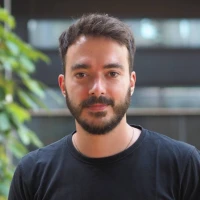International Research Camp at Merseburg University of Applied Sciences
The IRC is designed to bring together scholars, researchers, PhD students and students from diverse academic backgrounds to engage in discussions, share insights, and foster collaborations in various research fields. One of the highlights of the IRC are guest speaker sessions, where we invited distinguished scholars from partner universities to deliver lectures, seminars, or workshops. The IRC will provide a platform for networking, collaboration, and the exchange of ideas. It will be an excellent opportunity for participants to forge new connections, explore potential research collaborations, and gain insights into emerging trends and developments in their respective fields.
International Research Camp 2025
Merseburg University of Applied Sciences held its second International Research Camp (IRC) from 20 to 22 May, 2025.
During a vibrant three-day event filled with inspiration and international exchange, students, professors, PhD candidates, faculty members and interested guests again joined researchers from around the world to share new perspectives and research approaches through engaging lectures and workshops.
International Research Camp 2024
Merseburg University of Applied Sciences held its first International Research Camp (IRC) from October 22 to 24, 2024.






